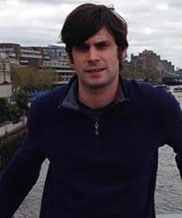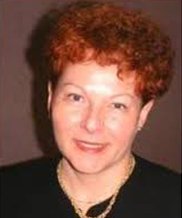Immersion for Collaboration
Global experience with virtual environments has skyrocketed in 2020. “Shelter-in-place” is our local term for working, learning and socializing remotely. Regardless of how it’s labeled, we have dramatically increased the proportion of communications and interactions that are NOT face-to-face. We’ve used virtual presence to share screens, to create meaning. We’ve learned new cues for taking turns in telepresence, and we’ve tamed the nests of cords and accessories that power and personalize our various devices.
In this virtual colloquia webinar series we will use existing and emerging technologies to leverage experiences and insights from the mediaX membership community of scholars, researchers, instructors and learners. This session will focus on COLLABORATION.
July 13, 5:00pm PACIFIC
IMMERSION FOR COLLABORATION
Nick Haber – AI for Affect, Personalization and Reciprocity: Modeling the Self and the Other
Renate Fruchter – Attention and Engagement for Teamwork
Ivan Davies – Players First: The Responsibility & Opportunity of Multiplayer Video Games Today
Additional Virtual Webinar Sessions
July 14, 12:00pm PACIFIC
IMMERSION FOR DISCOVERY
Chris Chafe – Diagnosing Acoustic Latency: Human Perception of Milliseconds
Allison Okamura – Engineering for Tactile/Haptic Thresholds
Ge Wang – The Artful Design of Immersion
Club Cardinal – Connecting for Inspiration (11:40a)
July 16, 9:00am PACIFIC
IMMERSION FOR LEARNING
Roy Pea – Leveraging Distributed Intelligence
Carla Pugh – Quantitative Predecessors to Human Actions
Jill Helms – Not for the Faint of Heart: Creating an Environment for Learning in Virtual Spaces
Aditya Vishwanath – The Many Futures of Virtual Learning Environments
Club Cardinal – Connecting for Inspiration (8:40a)
Presenters

Nick Haber is an Assistant Professor at the Stanford Graduate School of Education, and by courtesy, Computer Science. After receiving his PhD in mathematics on Partial Differential Equation theory, he worked on Sension, a company that applied computer vision to online education. He then co-founded the Autism Glass Project at Stanford, a research effort that employs wearable technology and computer vision in a tool for children with autism. Aside from such work on learning and therapeutic tools, he and his research group develop artificial intelligence systems meant to mimic and model the ways people learn early in life, exploring their environments through play, social interaction, and curiosity.

Renate Fruchter is the founding director of the Project Based Learning Laboratory (PBL Lab), lecturer in the Department of Civil and Environmental Engineering, and Senior Research Engineer thrust leader of “Collaboration Technologies” at the Center for Integrated Facilities Engineering (CIFE), at Stanford. She leads a research effort to develop collaboration technologies for multidisciplinary, geographically distributed teamwork, and e-Learning. Her interests focus on R&D and larger scale deployment of collaboration technologies that include Web-based team building, synchronous and asynchronous knowledge capture, sharing and re-use, project memory, corporate memory, and mobile solutions for global teamwork and e-Learning. In addition, she has established in 1998 a strong research effort focusing on the impact of technology on learning, team interaction, and assessment. She is the leader and developer of the innovative "Computer Integrated Architecture/Engineering/Construction Global Teamwork" course launched in 1993, at Stanford, that engages universities from US, Japan, and Europe.

Ivan Davies has a background in sports psychology, specialising in group cohesion and collective efficacy. In 2005, he became a Physical Education teacher in the UK, where he delivered lessons for students aged 11–18 years in a co-educational specialist sports college. During this period, he worked with the Qualifications and Curriculum Authority (QCA) to carry out two high school investigations on Assessment for Learning. Outside of teaching, Ivan has worked with professional athletes across multiple sports, including esports. Ivan’s lifelong passion for community has seen him work on significant youth initiatives, a path that lead him to leading Community and Social Play in the Riot Games Sydney office. Ivan now channels his passion for community towards discovering and refining ways to support the League of Legends community in Oceania. When he’s not organising community events, Ivan enjoys spending time with his whānau.